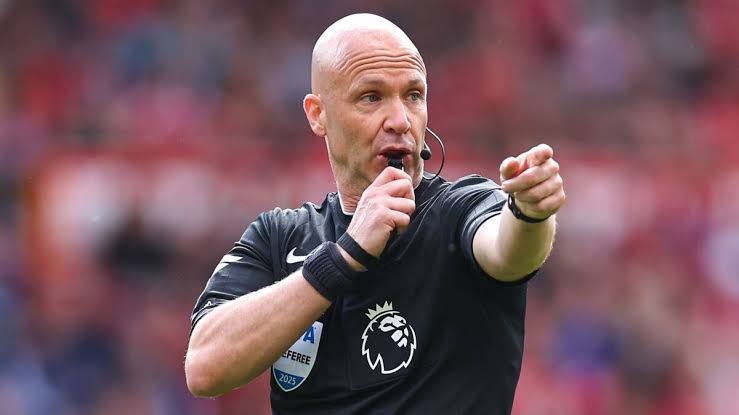The Premier League is set to kick off its new season, and fans tuning in will notice more than just fresh faces and new signings—several rule changes are also being introduced.
Liverpool and Bournemouth will get things started on Friday night, with Anfield hosting the reigning champions’ first outing of the campaign.
- Enzo Maresca fires back at Arne Slot over Chelsea Premier League title claim
- Arne Slot predicts where Chelsea will finish in the Premier League this season
- Man Utd fans have come to immediate verdict after first footage of Sesko in training emerges
Arne Slot’s side enters the season with high expectations after a summer spending spree nearing £300 million, but Bournemouth, last season’s surprise performers, won’t be easy opponents. ..Continue Reading
Beyond the excitement of new lineups and tactical shifts, viewers will also see updates to the laws of the game, including one controversial change aimed at goalkeepers.
Goalkeeper time-wasting clamp down
One of the most talked-about adjustments is a crackdown on time-wasting by goalkeepers. Under the new rule, keepers are now limited to holding the ball for no more than eight seconds when using their hands or arms.
Referees will issue a five-second warning, and if the ball isn’t released in time, the opposing team will be awarded a corner kick.
This change is part of a broader effort to speed up play and reduce delays, and it’s expected to be adopted globally—not just in the Premier League.
Alongside this, fans can also expect enhancements in broadcast coverage and other tweaks designed to improve the viewing experience.
As the season begins, these new rules will be under close scrutiny, especially in high-stakes matches where every second counts. Whether they improve the flow of the game or spark fresh controversy remains to be seen.
Karren Brady, vice-chairman of West Ham, has hit out at the rule, dubbing it a ‘daft tinkering.’ She wrote for The Sun: “What was wrong with the old rule which gave keepers six seconds to release, with punishment in the form of an indirect free-kick? Beats me. It was hardly ever enforced anyway.
“The purpose of this newest change is to cut down on time-wasting but how can extending possession from six to eight seconds do that? And also the fact that the ‘old’ rule was almost never imposed surely means it was a good rule.”
Cameras in dressing rooms
Premier League broadcasting is undergoing another significant change, with new access granted to home team dressing rooms and players now available for interviews during halftime or after being substituted.
Sky Sports, set to air 215 Premier League matches this season, will introduce a range of broadcast enhancements. As part of these upgrades, media outlets will receive an unprecedented level of access to both players and coaching staff.
Starting this season, both Sky and TNT Sports will be allowed to enter home dressing rooms for behind-the-scenes coverage.
However, clubs can refuse entry if they are trailing at the time. If access is denied, the broadcaster must be granted a similar opportunity later in the season.
Each club will only be required to grant this kind of access twice per season. Additionally, it is up to the home team to decide whether audio recordings will be permitted during these moments.
Broadcasters need to notify clubs at least five days in advance if they wish to film inside the dressing room, and clubs must respond no later than 72 hours before kickoff.
Interview protocols have also been updated—players are now eligible to be interviewed after being subbed off or during the halftime interval.
For halftime interviews, broadcasters must submit their request 24 hours before the game and provide a shortlist of five potential interviewees by the 40th minute of the match.
These mid-game interviews must maintain a ‘positive’ tone. Furthermore, interviews with substituted players or managers cannot occur before the 85th minute, and only a maximum of two questions may be asked during these segments.
Captains only
According to new guidelines approved by football’s rule-making body, the International Football Association Board (IFAB), only team captains are permitted to approach the referee during matches.
Players who attempt to speak to the referee without authorization risk being shown a yellow card, as officials aim to crack down on dissent and poor conduct. If a team’s captain is the goalkeeper, an outfield player can be appointed to communicate with the referee instead.
Updated penalty rule
Fans who watched the Lionesses’ Euro 2025 win over Spain may have noticed a change in penalty regulations.
During the match, England’s Beth Mead was allowed to retake her initial penalty after unintentionally touching the ball twice — a situation now addressed in the updated rules, which will be implemented across all competitions starting this season.
Handling the ball from the sidelines
Another rule change targets interference from individuals off the pitch. If a substitute, coach, or anyone not actively playing — including dismissed players or staff — touches the ball before it leaves the field, the opposing team will be awarded an indirect free kick.
This measure is designed to prevent unauthorized involvement in live play.

